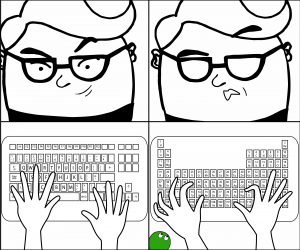Translation Agency Tips: #33 When things get too technical…

You’ve been offered a job from a client and of course the first thing you want to do before accepting the project, is to check the documents and make sure that the source materials are in a subject area you’re familiar with, and that you’re able to deliver a quality job.
Unfortunately, every now and then a supplier will take on a project which is too technical for their level of expertise. Perhaps because they are desperate to start working with a particular client, or they haven’t checked the source texts carefully. Sometimes, it can just be an honest mistake. Source texts that appear to be well within your level of expertise at a first glance can take a suddenly become very technical halfway through.
Whatever the reason, if you find yourself in this situation, our best advise is to always be honest with your client, and let them know as soon as possible that you won’t be able to complete the translation because the terminology has become too technical for you to handle. Although this might not seem like a very professional course of action, it will actually prove that your priority is to produce a quality translation, and admitting you’re in over your head as soon as possible will leave the client more time to reassign the job to a different translator, and make sure that the end client’s requirements are met.
I can recall a couple of instances when we’ve been let down by suppliers because they realised too late that the job they had accepted was not the kind of text they thought it was upon first inspection. This is something that a translator should be able to assess quite quickly, and the more experience you have, the better you’ll be at this. That being said, checking a source text extra carefully can eliminate the chance of this happening, as can keeping your clients up do date with your areas of expertise, to ensure that you’re not contacted for an unsuitable project in the first case. The best policy is to never agree to take on anything until you’ve seen the source materials.
Being professional and honest with your clients at all times will help you build the best working relationship with them, while demonstrating your dedication to quality. Everyone makes mistakes. The most important thing is how we react after we’ve made them, so don’t be afraid to admit that you’re out of your depth as the alternative is much worse!













